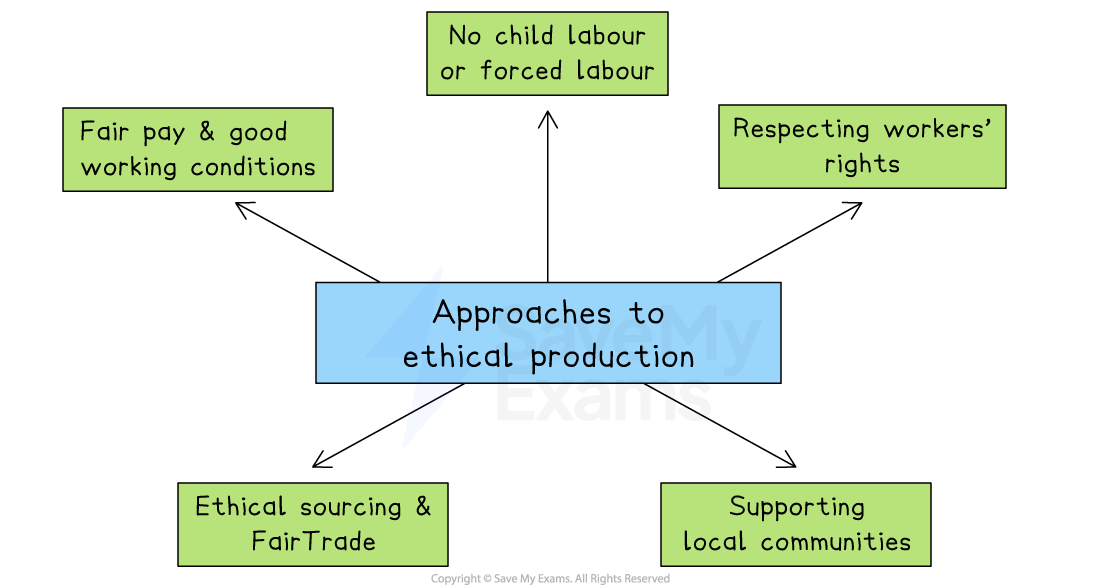Producing Ethically (SQA National 5 Business Management): Revision Note
Exam code: X810 75
Ways to produce ethically
Social responsibility means that a business tries to do what is right for people, not just what is most profitable
In production, this involves treating employees fairly, using safe working practices and respecting human rights throughout the supply chain
Approaches to ethical production

1. Fair pay and good working conditions
Businesses should pay workers fair wages and provide safe, comfortable workplaces
They should avoid exploiting staff through long hours, low pay or unsafe environments
E.g. John Lewis pays all employees a fair hourly rate and shares profits through its partnership bonus system
2. No child labour or forced labour
Ethical producers make sure that all workers are employed legally and by choice
They carry out checks on suppliers to ensure no child or forced labour is used
E.g. Clothing companies working with the Fair Wear Foundation regularly inspect factories to ensure safe and legal employment
3. Respecting workers’ rights
Employees should have the right to join trade unions, receive training, and raise concerns without fear of punishment
Businesses that listen to staff and involve them in decisions build trust and a positive workplace culture
E.g. Large manufacturers such as Rolls-Royce have staff consultation schemes to make sure workers’ voices are heard
4. Ethical sourcing and FairTrade
An ethical business ensures that its suppliers also treat their workers fairly
It may buy materials from Fairtrade-certified producers or check that factories follow ethical standards
This supports fair pay and better living conditions for workers around the world.
E.g. Many UK supermarkets sell Fairtrade tea, coffee and cocoa, guaranteeing fair prices to farmers
5. Supporting local communities
Ethical producers often try to give back to the communities where they operate
They may provide jobs, fund local projects or support schools and charities
This strengthens their reputation and builds community loyalty.
E.g. Some Scottish food manufacturers donate surplus stock to local food banks instead of letting it go to waste
Case Study

Mackie’s of Scotland is an Aberdeenshire business that produces ice cream and chocolate. It is a family-run company known for treating staff fairly and producing high-quality products
Ethical practices
Fair employment: All staff are paid at least the Living Wage, not just the legal minimum
Staff development: Employees are encouraged to train and progress within the company
Local sourcing: The company buys milk and cream from its own dairy herd and works with local suppliers, supporting the regional economy
Community support: Mackie’s regularly donates to local schools and charities
Transparency: It clearly labels its products so customers know exactly where ingredients come from
Impact
Mackie’s reputation for honesty and fairness has helped it build strong customer loyalty in Scotland and beyond
By acting responsibly, it benefits both its employees and the local community while maintaining a positive brand image
Examiner Tips and Tricks
Don’t confuse ethical production with environmental action – it’s about doing what’s right for people, including fair wages, safe conditions and no child labour

Unlock more, it's free!
Was this revision note helpful?
